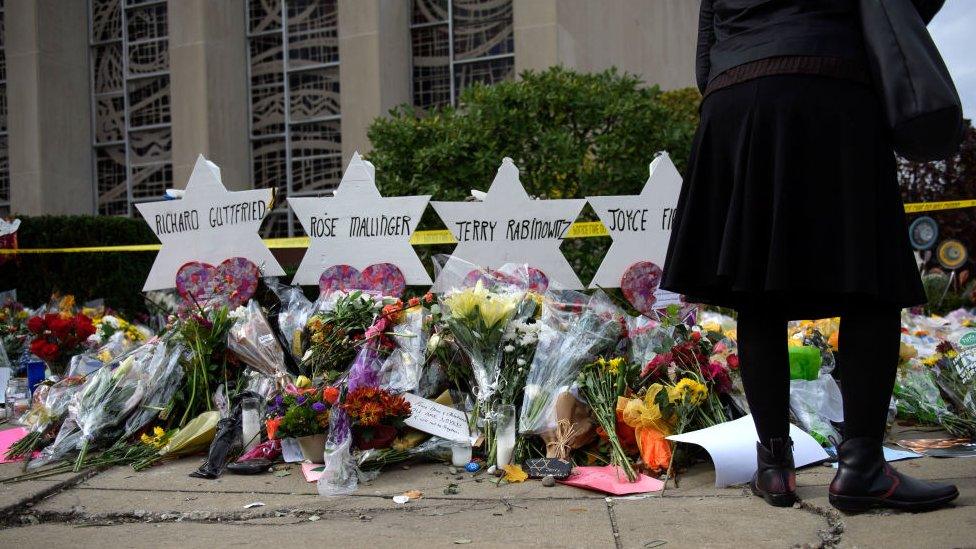Pittsburgh synagogue gunman gets death penalty
- Published
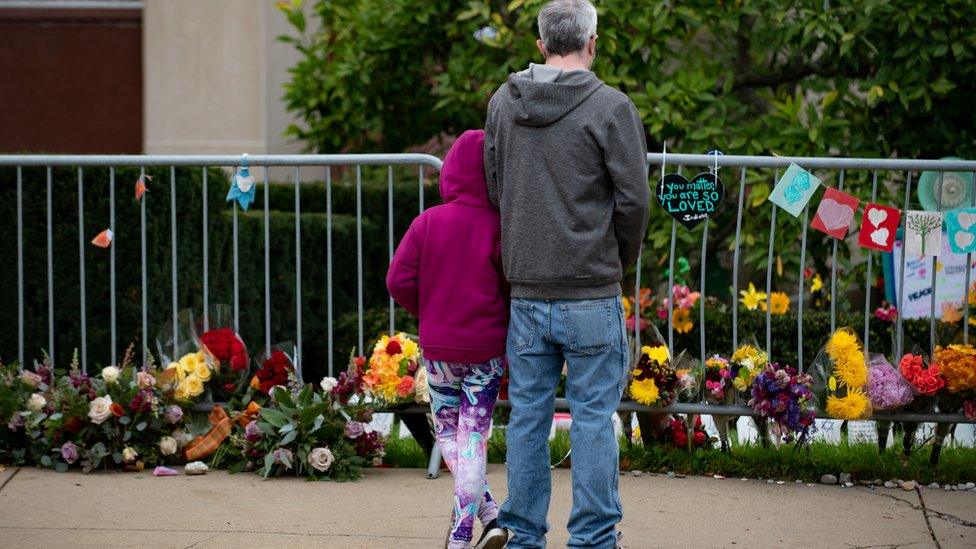
Robert Bowers shot and killed 11 people at Pittsburgh synagogue and injured several more
A US judge has sentenced the attacker who killed 11 people at a synagogue in Pittsburgh in October 2018 to death by execution.
A 12-member jury agreed unanimously for the death sentence to be imposed. Prosecutors had asked the jury to vote for the death penalty.
The same jury found the man guilty of all 63 charges stemming from the attack on the Tree of Life synagogue.
It was the worst antisemitic attack in American history.
The jury's decision was delivered to US District Court Judge Robert Colville on Wednesday. Mr Colville formally imposed the sentence at a hearing on Thursday.
He did so after hearing emotional testimonies from survivors and family members.
The jury in the case deliberated for 10 hours over two days. A decision was reached on the second day of deliberations.
Robert Bowers killed 11 worshippers in the attack, ranging in age from 54 to 97. Seven others were injured, including five police officers who rushed to the scene.
Three congregations - Dor Hadash, New Light and the Tree of Life - shared the synagogue.
Reporters inside the courtroom said Bowers had no reaction as the death sentence verdict was read.
Most families of those killed in the attack have said they support the death penalty for Bowers, although some, including the Dor Hadash congregation, have stated their opposition.
At a news conference on Wednesday, many families and survivors said they were relieved at the verdict.
Rabbi Jeffrey Myers of the Tree of Life Congregation, a survivor of the attack, said the jury's decision provides some closure to the community.
"Today we've received an immense embrace from the halls of justice around all of us, to say our government does not condone antisemitism in the most violent form that we have witnessed," Rabbi Myers said.
Audrey Glickman, another survivor, said the verdict is "a step in the right direction".
"Had we not had this trial, the deeds of this criminal would have been glossed over in the annals of history," she said.
Family of Rose Mallinger, one of the victims, said: "Returning a sentence of death is not a decision that comes easy, but we must hold accountable those who wish to commit such terrible acts of antisemitism, hate, and violence."
In a statement, the Dor Hadash congregation thanked prosecutors and those who participated in the trial.
Prosecutors had argued during the trial that the death sentence was necessary because the 50-year-old truck driver continues to espouse a hatred for Jews and has demonstrated no remorse for his actions.
"This is a case that calls for the most severe punishment under the law - the death penalty," US Attorney Eric Olshan said.
Bowers' defence argued that he suffers from mental health issues that causes him to hold delusional beliefs about Jewish people.
In Wednesday's verdict, the jury unanimously said the defence failed to prove the gunman suffered from a mental disorder or committed the crimes "under mental or emotional disturbance".
They also ruled that all five aggravating factors in the case were proven, which included Bowers' killing of the worshippers inside the synagogue as well as the permanent impact left on the survivors.
Federal prosecutors rarely pursue the death penalty. Between 1988 and 2021, only 79 defendants in such cases were sentenced to death, according to the Death Penalty Information Center.
The jury's ruling marks the first federal death sentence under Joe Biden's presidency.
It is the second federal death penalty prosecution during Mr Biden's administration, after a jury failed to unanimously vote to execute a man inspired by ISIS who attacked a New York City bike path in 2017.
Rabbi Doris Dyen: 'I'm broken and I can't pray' (from 2018)
- Published16 June 2023
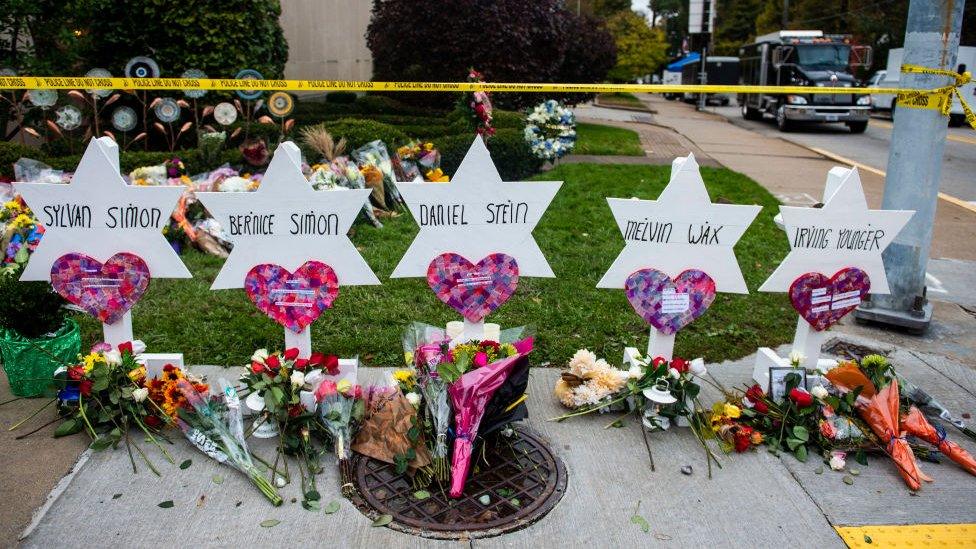
- Published31 May 2023
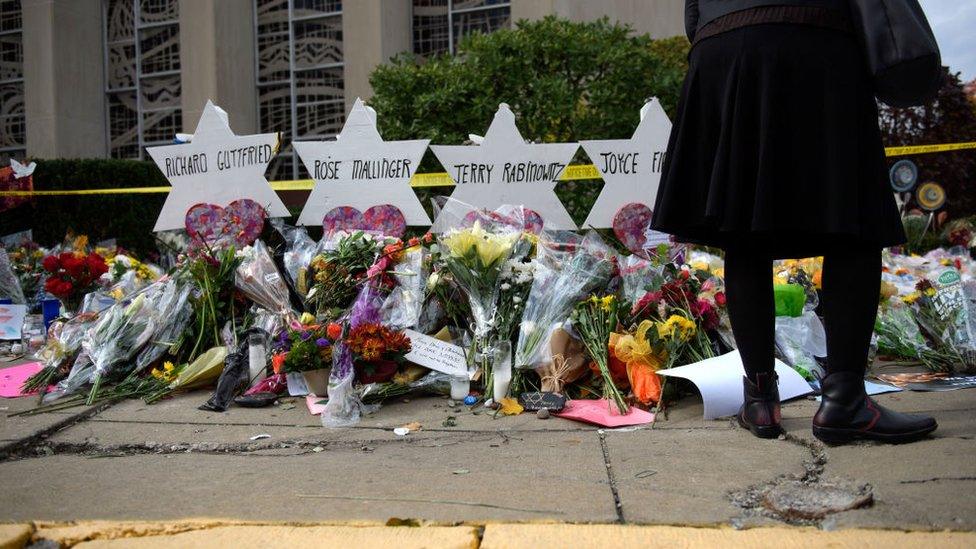
- Published29 October 2018
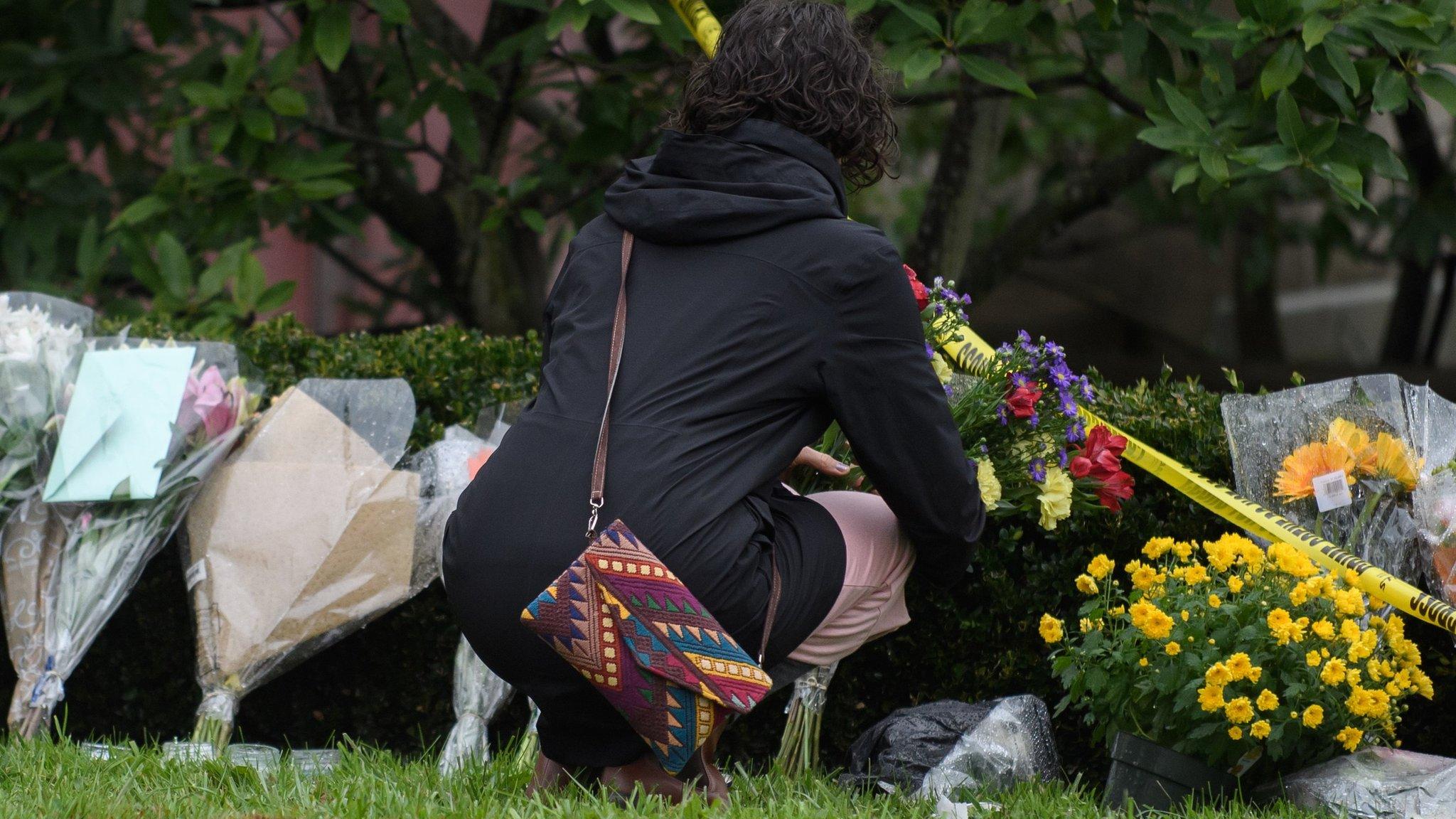
- Published30 May 2023
